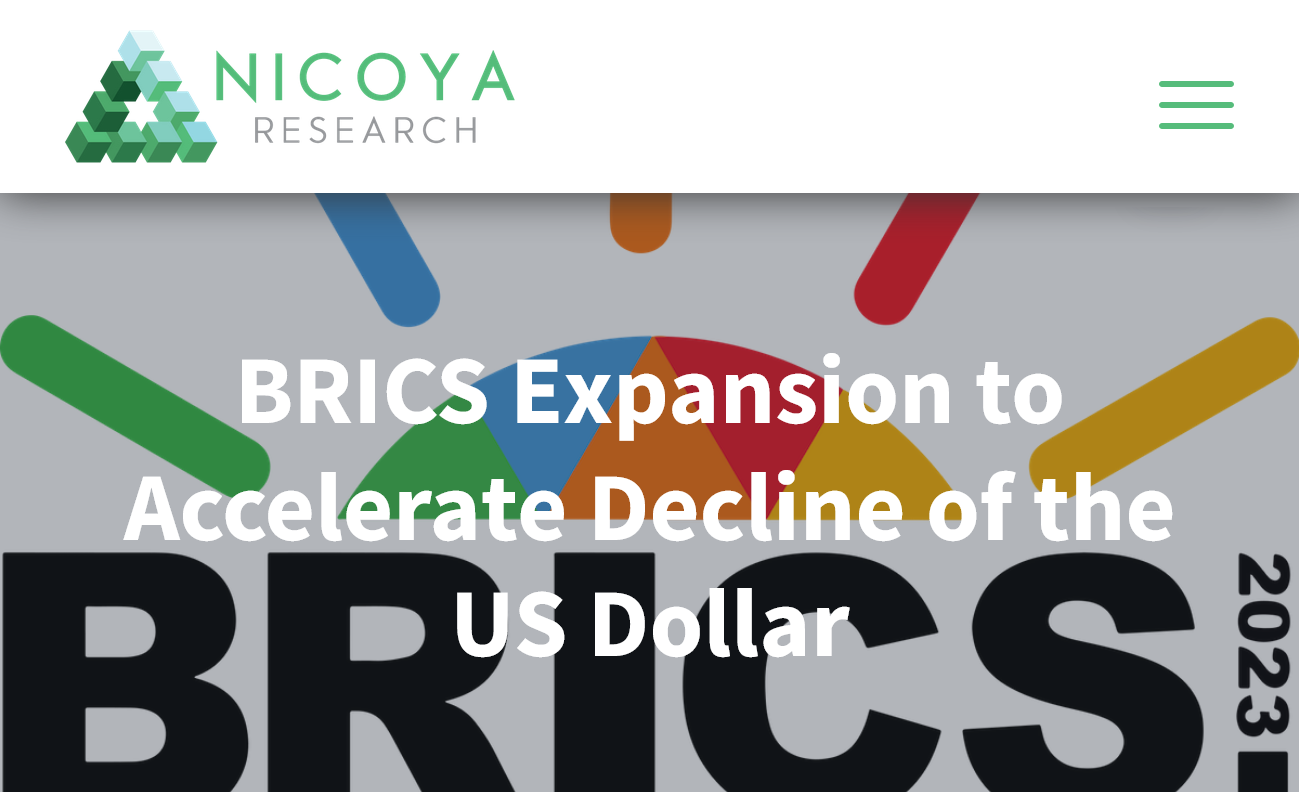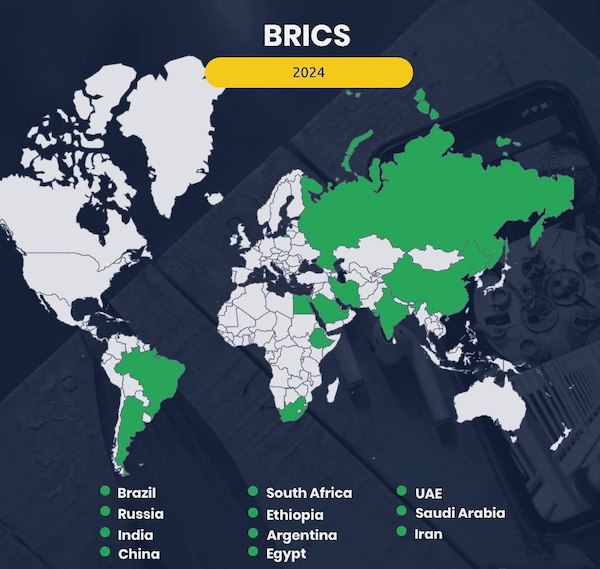
Gerald Epstein looks at how the loss of the dollar’s reserve currency status could impact the U.S. and world economy.
Since Russia invaded Ukraine, and especially after Washington imposed sweeping sanctions on Moscow, a number of countries across the world — including Brazil, China, India, Iran, Saudi Arabia and South Africa — have been pushing back against the hegemony of the U.S. dollar in the global economy. As this de-dollarization movement picks up steam we are forced to ask: Is the U.S. dollar’s dominance under threat? Would ending the U.S. dollar hegemony benefit the world?
To what extent is the preeminent role of the U.S. dollar in the global economy linked to the size and strength of the U.S. economy?
As the numbers I presented just above suggest, at the time the U.S. overtook the British pound sterling around the time of the First World War, the size and economic strength of the U.S. was very important in determining the international role of the dollar. But by the turn of the 21st century, the relative size and strength of the U.S. economy had greatly fallen (indeed, the Chinese economy now is or soon will be the largest economy in the world), yet the overall role of the U.S. dollar in international money has remained dominant.
Is there a connection between the resiliency of the dollar’s role as global currency and the dynamics of financialization and/or the mechanisms of U.S. imperialist hegemony?
Yes, to both questions. While the U.S. has become much smaller in the world in terms of manufacturing output and even in the production of nonfinancial services, it has remained a huge global power financially. The U.S. dollar is used in 60 percent of the world’s bank loans and deposits; it accounts for almost 70 percent of the global debt issued in foreign currencies (e.g., Brazilian international borrowing in foreign currency); and the U.S. dollar is involved in almost 90 percent of all global foreign exchange transactions, most of which are for various kinds of financial trading and speculation.
In short, the U.S. has become one of the most “financialized” countries on the planet and this financial dominance props up the international role of the dollar. Importantly, causation runs the other way, too: having the dollar as the key international currency also enhances the role, profits and power of U.S. finance in the world.
Likewise, imperialism helps to prop up the key currency role of the U.S. dollar and this key currency role facilitates U.S. global political and military power — that is, the use of international power to extract resources from other countries for the benefit primarily of U.S. capitalists and the 1 percent.
What would happen if the U.S. dollar was dethroned as the world’s primary reserve currency? How would it affect the global economy, as well as the U.S. economy, and the laboring classes?
As I have suggested, it might reduce U.S. military adventurism. It might also reduce, however, the ability of the U.S. to run large budget deficits and current account deficits. The former would mean that the working class would need to build and utilize more political strength to demand government priorities serve the needs of people, rather than of the top 1 percent, banks, military contractors and fossil fuel companies. Current account deficits might also increase local production in the U.S. which, under the right circumstances, could be a boon to domestic employment.
As for the rest of the world, it might tilt some of the global financial and political power elsewhere. Whether the world’s workers or world’s capitalists outside of the U.S. capture that power is a big question, which I cannot answer here.
https://www.nasdaq.com/articles/how-would-new-brics-currency-affect-us-dollar-updated-2024
+++++++++++++++++++++++++

BRICS is a grouping of the world economies of Brazil, Russia, India, China, and South Africa formed by the 2010 addition of South Africa to the predecessor BRIC. The original acronym “BRIC”, or “the BRICs”, was coined in 2001 by Goldman Sachs economist Jim O’Neill to describe fast-growing economies that would collectively dominate the global economy by 2050. The BRICS have a combined estimated total population of about 3.2 billion, or around 42% of the global population.

Its already over for the dollar! Printing money to pay the interest on Bonds. Politicians sold out manufacturing, bankrupted the country with wars, cities are becoming lawless infested with drugs and crime. Who would really want to do business with the USA?
We need to bring back Happy Days and Leave it to Beaver Era
Oh, the wonderful memories!
Thanks for bringing this up, Mike!
happy days theme song original complete
https://www.youtube.com/watch?v=slvGKU7HF6M
https://www.youtube.com/watch?v=wL4dOfgslio
https://www.youtube.com/watch?v=U05rcA0ncgE